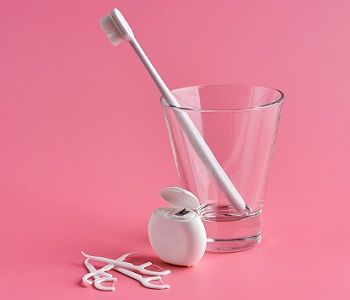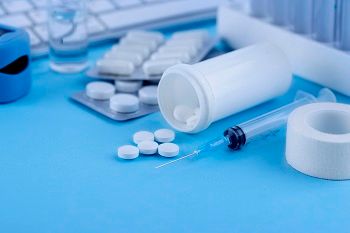Full Jaw Restoration Aftercare: Tips for a Successful Recovery
Dental Implants Solutions
A full jaw restoration can significantly impact your oral health and overall well-being, but recovery can be just as crucial. Proper aftercare is essential to ensure a successful recovery and long-lasting results. This blog post will discuss tips and recommendations to help you navigate the post-surgery recovery period and minimize discomfort or complications. We've covered you, from pain management techniques and dietary restrictions to oral hygiene practices and follow-up appointments. So, let's dive into the world of full jaw restoration aftercare and learn how to make your recovery journey as smooth and successful as possible.
What is full jaw reconstruction?
Full jaw restoration, or full mouth reconstruction, is a comprehensive dental treatment involving rebuilding or replacing all teeth in the upper and lower jaws. This procedure is for patients with extensive damage, decay, or tooth loss in both arches and those with significant bite problems or functional issues with their jaw joints. Full jaw restoration may involve a combination of different treatments, such as dental implants, bridges, dentures, orthodontics, and other procedures to address underlying dental or medical conditions. Full jaw restoration aims to improve both the function and aesthetics of the patient's smile and their overall oral health and quality of life.
Post-Surgery Care: What to Expect?
After undergoing full jaw restoration surgery, following proper post-surgery care is essential to ensure a successful recovery. Here are some things to expect during the post-surgery period:
- Pain and Discomfort: You may experience discomfort, swelling, and pain in the surgical area. Your dentist or oral surgeon may prescribe pain medication to help manage the pain.
- Dietary Restrictions: You may need to follow a specific diet for a few days after surgery to promote healing and reduce the risk of complications. Your dentist may recommend consuming only soft foods, avoiding hot or spicy foods, and avoiding straws.
- Oral Hygiene: You must maintain good hygiene practices to promote healing and prevent infection. Your dentist may recommend using a special mouth rinse and avoiding brushing near the surgical site.
- Follow-Up Appointments: You must attend follow-up appointments to ensure proper healing and monitor your progress. Your dentist may adjust any temporary appliances or make necessary changes to your treatment plan.
Following these guidelines and recommendations can minimize discomfort and complications and ensure a successful recovery after full jaw restoration surgery.
Pain Management Techniques
After full jaw restoration surgery, it's common to experience some pain and discomfort. Here are some pain management techniques that can help:
Pain Medication: Your dentist or oral surgeon

may prescribe pain medication to help manage your pain. Take medicine as directed and never exceed the recommended dosage.
Ice Packs: Applying ice packs to the surgical site can help reduce swelling and discomfort. Place an ice pack in the area for 10 to 20 minutes, with 20-minute breaks.
Rest: Getting plenty of rest after the surgery is essential, as physical activity can increase pain and swelling. Take it easy for the first few days after surgery, and avoid strenuous activities.
Elevate Your Head: Elevating your head while sleeping can help reduce swelling and discomfort. Use a few extra pillows or a wedge-shaped pillow to elevate your head.
Distraction Techniques: Engage in activities that can distract you from the pain, such as watching TV, reading a book, or listening to music.
Ask your dentist or oral surgeon about pain management concerns or questions. They can recommend the best approach for managing your pain based on your specific needs and medical history.
Dietary Restrictions and Recommendations
After full jaw restoration surgery, you may need to follow specific dietary restrictions and recommendations to promote healing and prevent complications. Here are some guidelines to follow:
- Soft Foods: Stick to soft foods for the first few days after surgery. This can include soups, broths, mashed potatoes, smoothies, and soft fruits.
- Avoid Hot and Spicy Foods: Avoid hot and spicy foods for the first week after surgery, as they irritate the surgical site.
- No Straws: Do not use straws for the first week after surgery, as the sucking motion can dislodge blood clots and delay healing.
- Chew Carefully: Chew carefully and slowly if you eat solid foods, using the side of your mouth opposite the surgical site.
- Hydrate: Drink plenty of water to stay hydrated but avoid drinking through a straw.
- Avoid Alcohol and Smoking: Avoid alcohol and smoking for at least 48 hours after surgery, as they can delay healing and increase the risk of complications.
- Nutritious Foods: Eat a balanced diet of vitamins and minerals to promote healing and boost your immune system.
Your dentist or oral surgeon will provide specific dietary recommendations based on your needs and medical history. Follow their instructions carefully to ensure a smooth recovery after full jaw restoration surgery.
Physical Activity and Exercise Restrictions
After full jaw restoration surgery, avoiding physical activity and exercising for a while is essential to allow your body to heal correctly. Here are some general guidelines to follow:
- Rest: Get plenty of rest for the first few days after surgery. Avoid any strenuous physical activity or exercise that can increase pain and swelling.
- Limited Physical Activity: For the first two weeks after surgery, limit physical activity to light walking or gentle stretching.
- Avoid Heavy Lifting: Avoid lifting heavy objects for the first two weeks after surgery, as this can increase blood pressure and lead to bleeding.
- Gradual Return to Exercise: After two weeks, you can gradually return to light exercises, such as yoga or low-impact aerobics. Avoid high-impact activities that can increase the risk of injury or delay healing.
- Consult with Your Dentist or Oral Surgeon: Talk to your dentist or oral surgeon about when to resume your regular exercise routine. They can provide specific recommendations based on your needs and the type of surgery you underwent.
Remember, giving your body time to heal after full jaw restoration surgery is essential. Avoid physical activity and exercise until you receive the go-ahead from your dentist or oral surgeon to prevent complications and ensure a successful recovery.
Oral Hygiene Practices: Brushing, Flossing, and Rinsing
Proper oral hygiene practices are essential after full jaw restoration surgery to prevent infection and promote healing. Here are some guidelines to follow:
Brushing: Brush your teeth gently, including the surgical site, using a soft-bristled toothbrush. Avoid brushing too vigorously, irritating the surgical site, and delaying healing. Use a non-abrasive toothpaste and rinse your mouth with warm saltwater after brushing.

Flossing: Floss gently around the surgical site to remove food particles and bacteria. Use soft and unwaxed floss and avoid flossing too hard, which can cause bleeding or dislodge blood clots.
Rinsing: Rinse your mouth with warm saltwater several times daily to reduce swelling, prevent infection, and promote healing.
Mouthwash: Your dentist or oral surgeon may recommend a specific mouthwash to use after surgery. Follow their instructions carefully and avoid using alcohol-based mouthwash, which can delay healing and cause dry mouth.
Wait to Brush: Wait to brush your teeth for the first 24 hours after surgery to avoid dislodging blood clots. After 24 hours, brush your teeth gently, including the surgical site.
Be gentle when brushing, flossing, and rinsing around the surgical site to avoid irritating the area and causing complications.
Possible Complications and How to Prevent Them
While full jaw restoration surgery is generally safe, potential complications can occur. Here are some possible complications and how to prevent them:
- Infection: Infection is a common complication after surgery, including full jaw restoration. Following proper oral hygiene practices, such as brushing and flossing gently around the surgical site and taking any prescribed antibiotics as directed, is essential to prevent infection.
- Bleeding: is also common after surgery, but excessive bleeding can signify a more severe complication. To prevent bleeding, avoid using straws, smoking, and drinking alcohol for the first 48 hours after surgery. Also, apply pressure to the surgical site with gauze if bleeding occurs, and contact your dentist or oral surgeon immediately if the bleeding persists.
- Nerve Damage: Nerve damage is a rare but possible complication of full jaw restoration surgery. Choosing an experienced and skilled dentist or oral surgeon is essential to prevent nerve damage. Also, discuss the risks and benefits of the surgery with your dentist or oral surgeon before the procedure.
- Swelling and Bruising: Swelling and bruising are common after surgery. However, excessive swelling and bruising can signify a more severe complication. To prevent excessive swelling and bruising, follow proper post-surgery care instructions, such as using ice packs and keeping your head elevated.
- Allergic Reaction: Allergic reactions to anesthesia or other medications used during the surgery are possible but rare. Discuss allergies or medical conditions with your dentist or oral surgeon before the procedure to prevent allergic reactions.
Contact your dentist or oral surgeon immediately if you experience any unusual symptoms after full jaw restoration surgery, such as severe pain, bleeding, or difficulty breathing. Early intervention can prevent more severe complications and ensure a successful recovery.
Conclusion
In conclusion, full jaw restoration is a complex surgical procedure. However, it can restore your smile, improve your bite, and enhance oral health. However, properly caring for your mouth after surgery is essential to ensure a successful recovery and prevent complications.
Some critical aspects of post-surgery care include managing pain and swelling, following dietary restrictions and recommendations, avoiding physical activity and exercise, and practicing proper oral hygiene, including brushing, flossing, and rinsing.
It's also essential to be aware of potential complications and how to prevent them, such as infection, bleeding, nerve damage, and allergic reactions.
By working closely with your dentist or oral surgeon and following their instructions carefully, you can minimize the risk of complications and promote healing for a successful full jaw restoration recovery.
Contact your Walnut Creek dentist, Massood Darvishzadeh, DDS at Dental Implant Solutions, to know more about Full Jaw Restoration aftercare.
Resource:
Post-Op Care & Recovery for Full Jaw Restoration
*This media/content or any other on this website does not prescribe, recommend, or prevent any treatment or procedure. Therefore, we highly recommend that you get the advice of a qualified dentist or other medical practitioners regarding your specific dental condition*
Subscribe To Our Newsletter
Get Updates And Learn From The Best
More To Explore



CONTACT US
Massood Darvishzadeh, DDS
2021 Mt Diablo Blvd., Suite 100A
Walnut Creek, CA 94596
(925) 939-2600info@dentalimplantsolutions.net